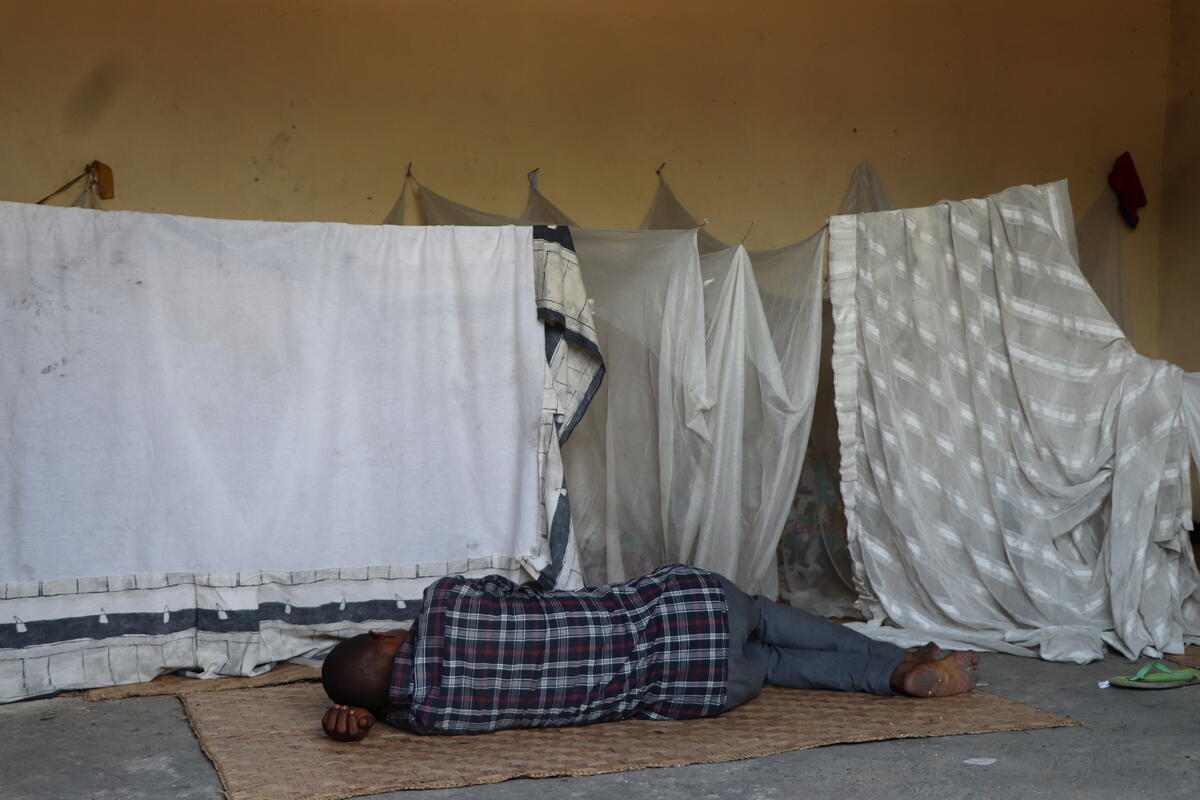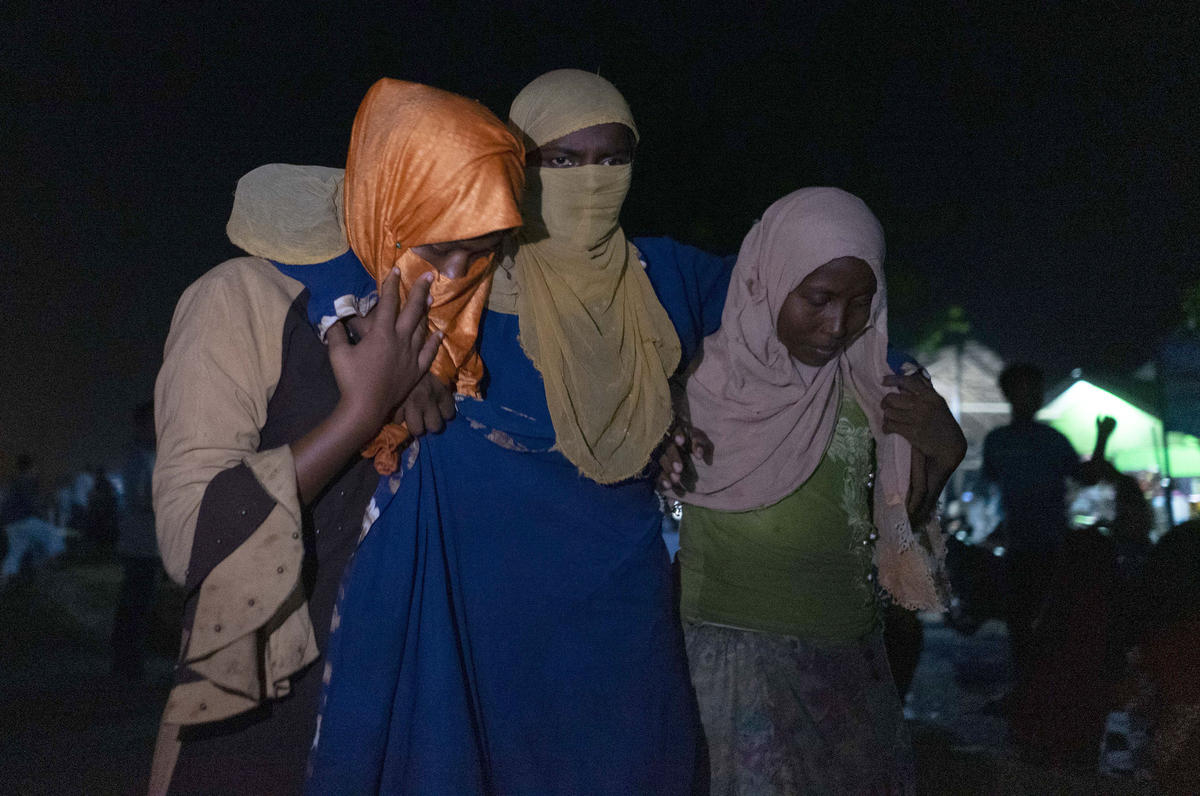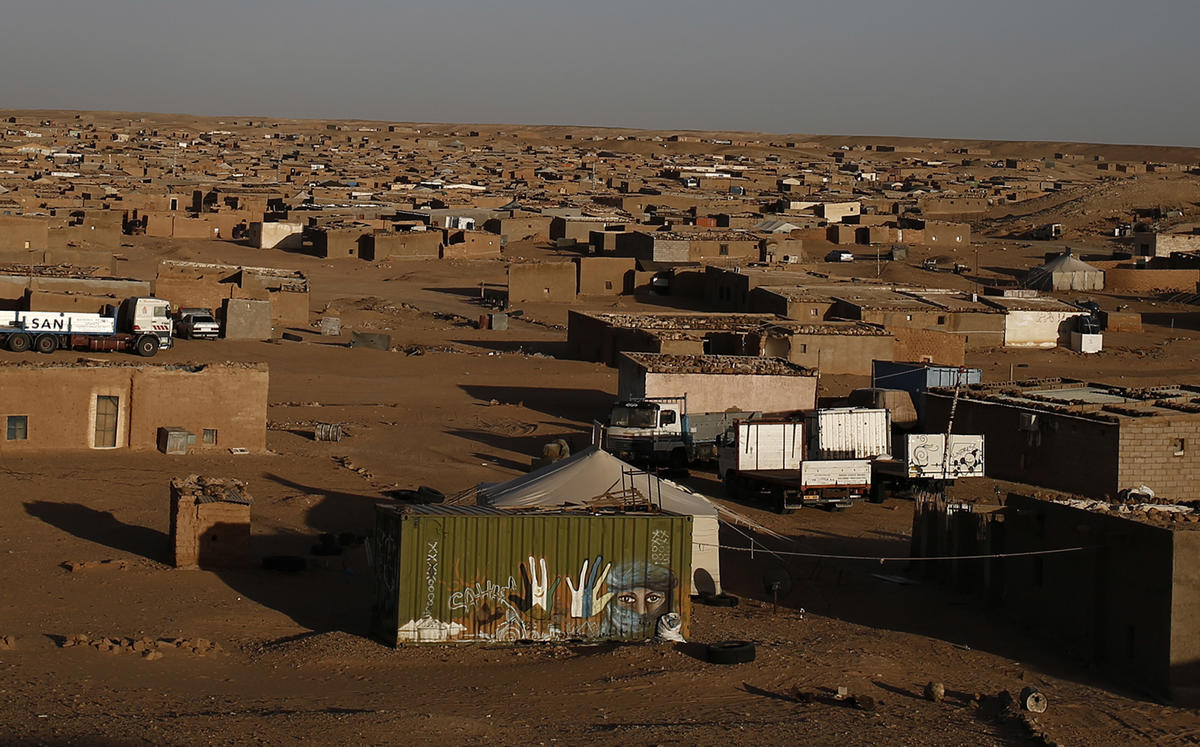Tough challenges face Congolese returnees to South Kivu
Tough challenges face Congolese returnees to South Kivu

UVIRA, Democratic Republic of the Congo, November 19 (UNHCR) - Refugee returnees to Democratic Republic of the Congo's South Kivu province always knew that they would face major challenges back home after years of being looked after in refugee camps in neighbouring countries.
But while the returnees had been forewarned by the UN refugee agency and others that conflict in the 1990s and in the first three years of this century had disrupted basic services and destroyed the little infrastructure that was there in the first place, most did not realize quite how difficult things were.
"Returnees are experiencing the same problems: lack of land, shelter, clean drinking water, education, employment opportunities and health facilities," said Jackie Keegan, a UNHCR protection officer based in the South Kivu town of Uvira, located at the northern end of Lake Tanganyika.
Aside from organizing the return of growing numbers of refugees to the province under a voluntary repatriation programme, UNHCR has been involved in reintegration projects, including refurbishment of infrastructure and restoration of basic services, including health care and education. But South Kivu is a massive, neglected area and it will need years of peace, hard work and funding to develop.
UNHCR has long stressed the importance of stepped-up international assistance to help the country get back on its feet. The lack of infrastructure and services not only makes social and economic life more difficult, it also heightens the potential for violence and contributes to poor health standards.
Many people die from cholera, typhoid and diarrhoea, or suffer from worms, because they are forced to drink tainted water and live in unsanitary conditions.
"Clean drinking water is difficult to find here. It barely exists," said one returnee in Uvira, who had recently returned after 10 years in a Tanzanian refugee camp.
Many people - usually women and children - have to walk several kilometres to fetch water for their families. This can interrupt the education of the children as well as affect agricultural and industrial output and development. UNHCR has begun improving access to safe water supplies and sanitation by rehabilitating existing water sources, constructing new ones and building latrines.
Malnutrition is also a problem among people who cannot afford a proper diet and healthy food. General mortality rates in some areas of eastern Democratic Republic of the Congo approach five times the sub-Saharan average, largely due to disease and malnutrition.
The facilities to cope with all these problems are still inadequate, though UNHCR and its partners have been helping to enlarge and improve the health care system. When the repatriation operation to South Kivu was launched in October 2005 from Tanzania, there were only 50 health centres in a province the size of Sri Lanka - not enough to cope with the existing population, let alone an influx of returnees. But the refugee agency has funded the rehabilitation of 11 health centres and plans to provide medical equipment to 27 health facilities.
UNHCR, through the International Medical Corps and AIDES, a French aid agency specializing in HIV/AIDS, has also been providing health care to returnees.This includes primary and follow-up care, screenings and referrals for those suffering from malnutrition, pre- and post-natal care, immunization as well as treatment and counselling for victims of sexual violence.
The UN refugee agency is also actively involved in education projects. It helps register returnee children for places in school and pays fees for the first year to encourage attendance among children who might otherwise be forced to work to help their families make ends meet.
Next year, UNHCR plans to refurbish and equip more schools in and around the towns of Uvira and Fizi. These schools will also benefit the children of families who never left the area, and so help promote reintegration. The refugee agency also hopes the new schools will help raise the percentage of girls at school - currently about 40 percent in South Kivu.
But while stiff challenges remain in South Kivu, the province has managed to avoid the kind of fighting in neighbouring North Kivu province between government forces and rebel troops that has displaced some 250,000 people since August. To date this year, UNHCR has repatriated some 14,000 people to South Kivu's Uvira and Baraka regions from Tanzania and almost 62,000 since the operation began.
By Francesca Fontanini in Uvira, Democratic Republic of the Congo









